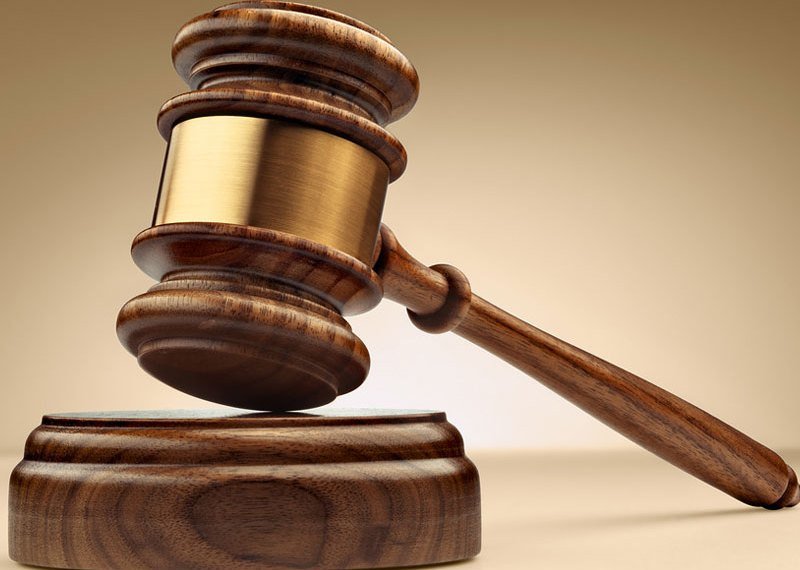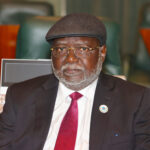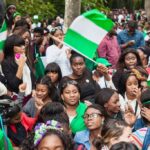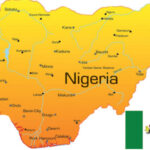Two seemingly disparate events in the past week brought home to me where we are in Nigerian politics and governance today. The first is the rather ‘public appeal’ for money to prepare election petition tribunals by the President of the Court of Appeal, Justice Monica Dongban-Mensem. “The fund to prosecute the 2023 general election petition tribunals”, the appeal court president told her colleagues and the nation during an event marking the beginning of the 2022/2023 legal year of the court, “has still not been released. This is becoming worrisome as it may impede plans to constitute the various tribunals and courts”.
The second is the ‘public admission’ by President Muhammadu Buhari that one of his “most enduring legacies” will be a free and fair election next year. “As President”, our president told his peers at the UN General Assembly in New York last week, “I have set the goal that one of the enduring legacies I would like to leave is to entrench a process of free, fair and transparent and credible elections through which Nigerians elect leaders of their choice”.
- Bleaching: Beware of organ damage, cancer, NAFDAC warns
- Nigeria must have national dream, identity – Obasanjo
To the extent that some things appear normal but are not, these statements are in fact a good indication of how low Nigerian affairs have sunk. The Appeal Court President, for example, is convinced—and she invites us all to be so convinced—that petition tribunals are so important that the non-release of funds for them will hamper the entire electoral process. But a truly serious electoral system should have little or no place for tribunals. Where in the world, even within Africa, are people worried about election petition tribunals or the funding for training justices, judges and registry staff for them in an election?
By all means the funds should be released to the court. But we must be clear about two issues here. First, election petition tribunals loom so large in our system because our politicians deal mainly in frivolities. Many politicians simply cannot accept defeat because they see elections as a do or die affair, and if they cannot win at the ballot, then they must seek to upturn the popular will at the courts. One of the most important principles of democracy is that losers in an election will readily accept defeat, provided the process is free and fair. Without this, democracy falls apart.
But our politicians will insist on going to court even where the evidence is clear that they lost soundly at the ballot box. Moreover, as the columnist Mahmud Jega once wrote, politicians who lost elections resort to the courts not necessarily because they have sufficient evidence to challenge the integrity of the process but because going to court is a strategic device for keeping their supporters in line with the hope that there is something ahead for them. The real problem, therefore, is not a lack of funding for tribunals but the indiscipline of our politicians.
Second, since at least 2011, the quality and integrity of our elections have improved markedly. This is evident by the fact that opposition candidates in presidential, governorship, national and state legislative contests can now win elections in this country if they received the most votes, unlike in the period before 2011. INEC and its leadership are not given enough credit for this, but the outcomes of recent governorship elections in Edo, Anambra, Ekiti and Osun states speak for themselves. Moreover, as our elections have improved significantly in quality and integrity, so too have the number and duration of election petition tribunals declined considerably.
We may not have noticed it, but Nigeria has long moved beyond the sorts of post-election legal and judicial dramas we witnessed around 2003 and 2007 because the elections have generally been free and fair. No tribunal has upturned the results of any major election in Nigeria since 2011, and most petitions filed in tribunals in recent years are no more than legal trivialities designed solely to drag on the election and make politicians feel good about themselves. This means that we should worry less about election petition tribunals. Instead, we should worry more about having to pay for the indiscipline of our politicians, which is really what Justice Dongban-Mensem is inviting us all to do.
All of which brings me to President Buhari and his free and fair election legacy. Reading the President’s speech at the UN General Assembly, you can almost feel the strategic efforts of his advisers to situate a free and fair election as an “enduring legacy” of his administration. In the speech, the President stresses his government’s adherence to the rule of law, and compares his frequently declared intention to not seek a “third term” favourably against other African leaders who have done so, without mentioning their names. He also emphasizes his administration’s efforts in promoting democracy and political stability in The Gambia and Chad over the past few years. All of these are true, and good for Nigeria’s image in the comity of nations.
But they are a long way from enduring legacy. First of all, the bulk of the credit for the enduring legacy of free and fair elections in Nigeria goes to the late President Musa Yar’adua who set off the sincerest efforts to reform our elections, and to the leadership of INEC from 2011 to date who have faithfully implemented and improved upon those reforms. It is true that President Buhari has not generally interfered with elections within his party and across the country. But if he deserves any credit for that—and he does some—it is no more than what former President Goodluck Jonathan deserves for not interfering with the 2011 and 2015 elections.
More importantly, it is quite stunning that after nearly eight years in government all that the president would be claiming as legacy are free and fair elections. When President Buhari assumed office in 2015, free and fair elections were not much of a problem in Nigeria, even if he has helped to improve and entrench them. Everybody knows what the real problems were and have remained. Poverty was a problem, but has only expanded since 2015. Unemployment was a huge problem, but it has only gotten worse. ASUU strikes were a problem, and lecturers are still on strike today.
Power outages were a problem, but have only marginally improved today. Roads were a problem in 2015, but eight years on, the Abuja-Kano Road remains uncompleted, like many others across the country. Insecurity was a problem in 2015, but still killed scores in Zamfara and elsewhere in just the past few days. Dysfunction in the civil service was a problem in 2015, but it has scarcely been worse than it is today. Corruption was a problem in 2015, and today, a former Accountant-General is in the dock over accusations of pilfering more than 100 billion naira. We can go and on but the point should be clear by now. These are the areas where a two-term president would like to leave enduring legacies worth the name, whatever else they do with elections and rule of law. And whatever else the government might claim, Nigerians know what the true legacies of this administration are and have been.

 Join Daily Trust WhatsApp Community For Quick Access To News and Happenings Around You.
Join Daily Trust WhatsApp Community For Quick Access To News and Happenings Around You.


